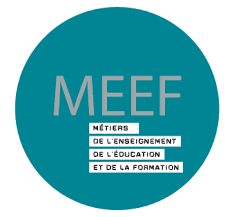L'impact des stéréotypes de genre sur la performance en mathématiques des élèves en cycle 2
Résumé
Awareness is increasing towards women’s under representation in STEM fields. This phenomenon is often linked to the stereotype threat which is said to have a negative influence on women’s performances in mathematics. The awareness of underrepresentation of women in scientific fields is increasing. The origin of this phenomenon is often associated with stereotype threat, which has a negative influence on women's performance in mathematics. The "French longitudinal study since childhood" also notices a performance gap among boys and girls between last year of kindergarten and first grade. This essay aims to study the link between this performance gap and the effects of stereotype threat in a school context. A study was conducted with first-grade students in the Besançon region. After completing mathematics exercises, the participants answered a survey to assess their anxiety and identification with gender stereotypes. Our results reveal that there is no significant difference between the performances of girls exposed to stereotype threat and those who were not. However, we noticed that girls who identify most with female stereotypes achieve better results. Furthermore, none of the participants reported experiencing anxiety towards mathematics.
La sous-représentation des femmes dans les disciplines scientifiques fait de plus en plus polémique. L’origine de ce phénomène est notamment associée à la menace du stéréotype qui exerce une influence négative sur les performances des femmes en mathématiques. L’« Étude longitudinale française depuis l’enfance » observe par ailleurs qu’un écart de performance s’opère chez les garçons et les filles entre la grande section et le cours préparatoire. L’objectif de ce mémoire est d’étudier le lien entre cet écart de performance et les effets de la menace du stéréotype dans un contexte scolaire. Une étude a donc été menée avec des élèves de CP de la région de Besançon. Après avoir réalisé des exercices de mathématiques, les participants ont répondu à un questionnaire pour évaluer leur anxiété et leur identification aux stéréotypes de genre. Nos résultats révèlent qu’il n’y a pas de différence significative entre les performances des filles exposées à la menace du stéréotype et celles qui n’y sont pas exposées. Toutefois nous avons remarqué que les filles s’identifiant le plus aux stéréotypes féminins présentent de meilleurs résultats. Par ailleurs, aucune participante n’a déclaré avoir ressenti de l’anxiété face aux mathématiques.
| Origine | Fichiers produits par l'(les) auteur(s) |
|---|---|
| licence |





